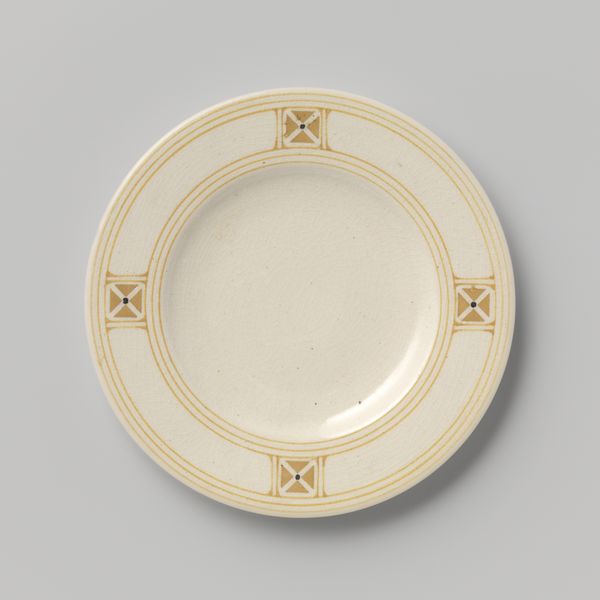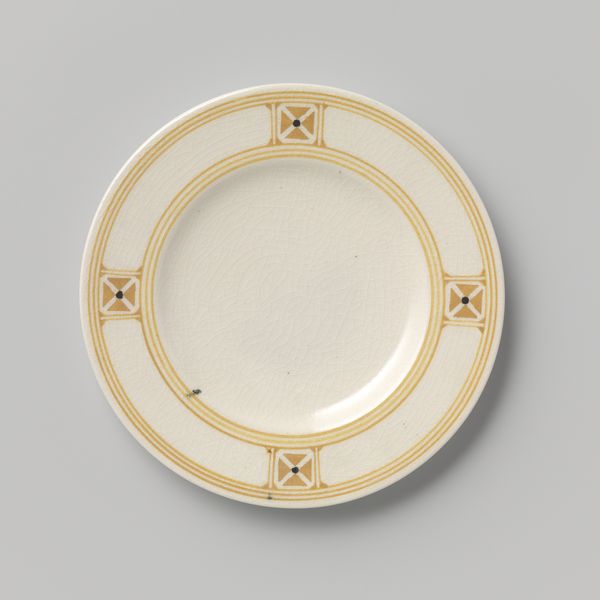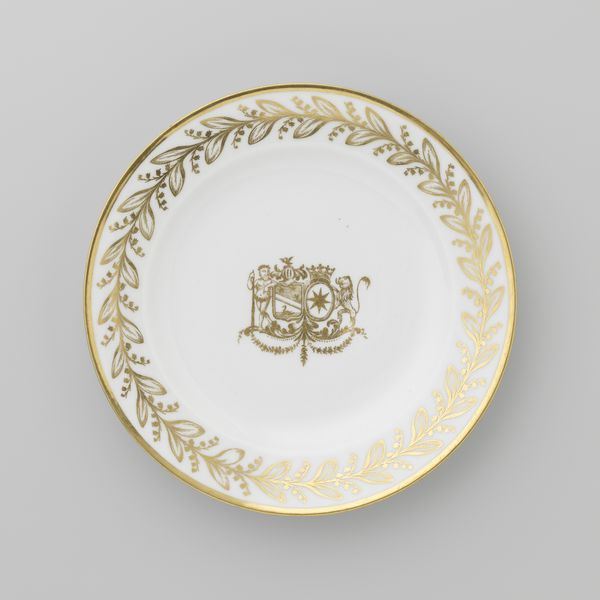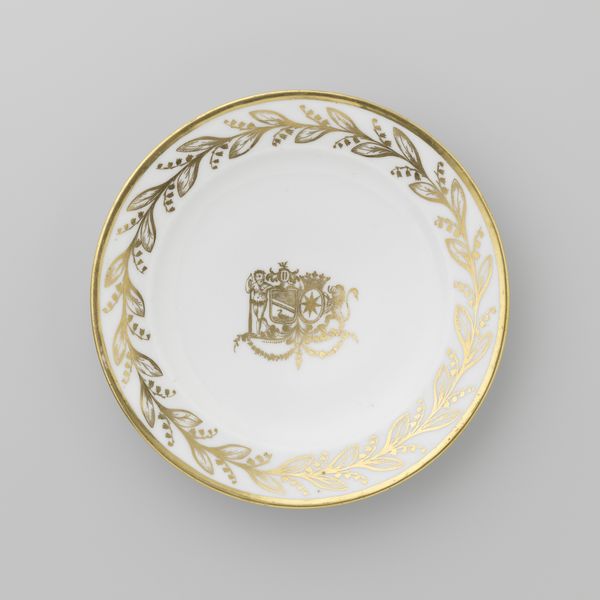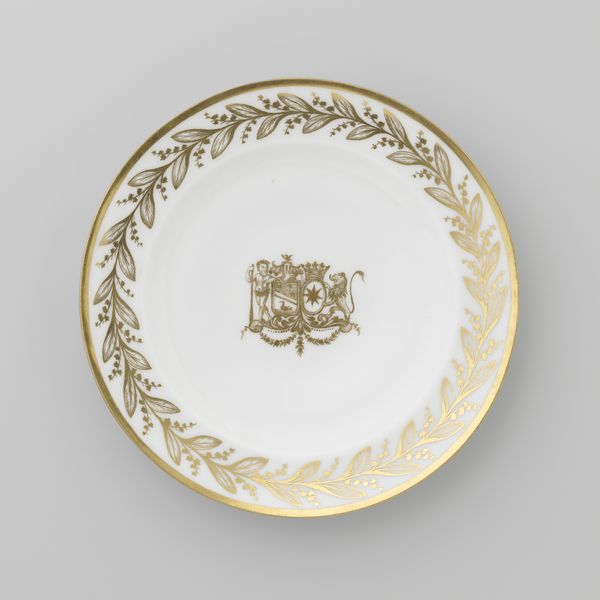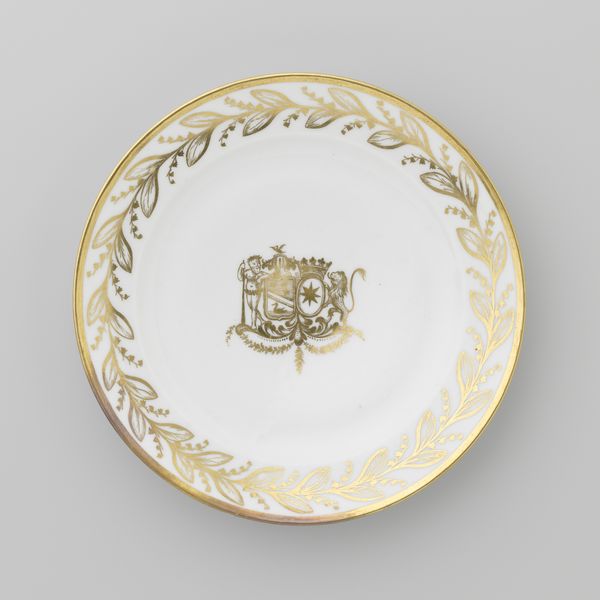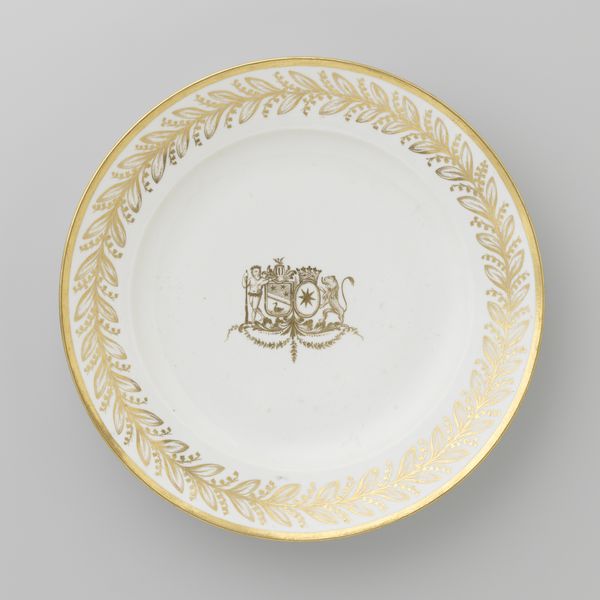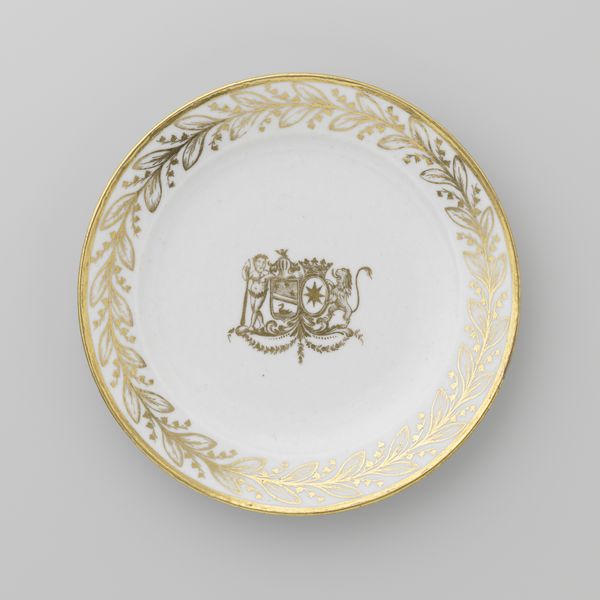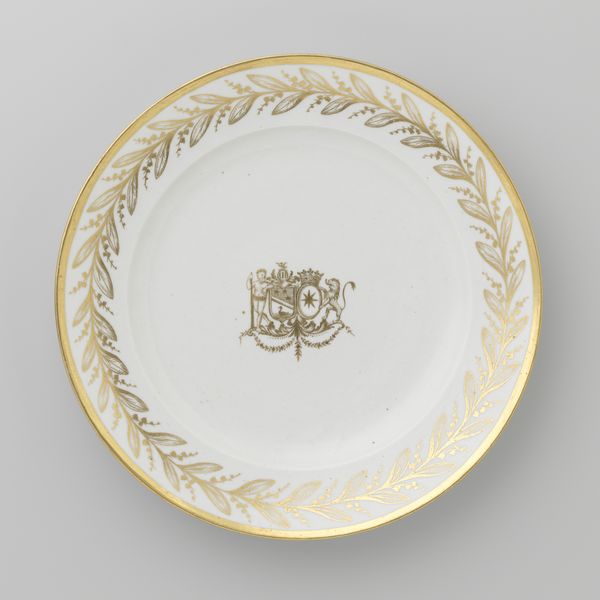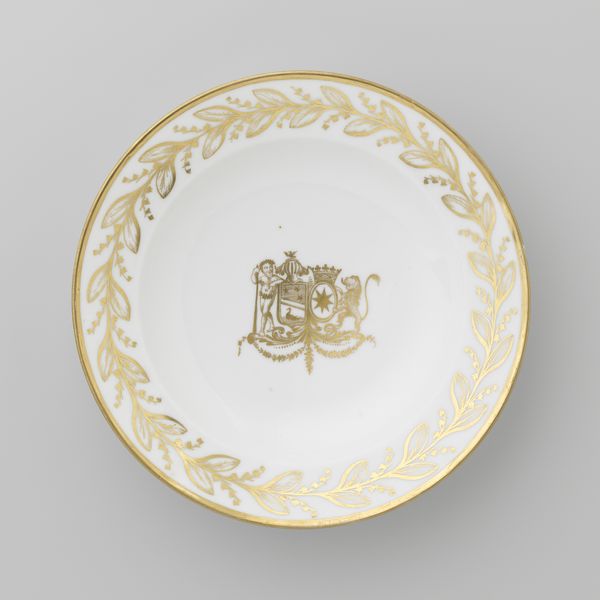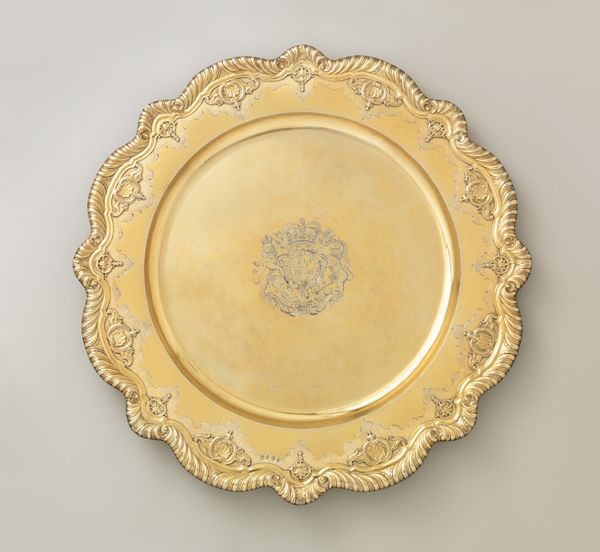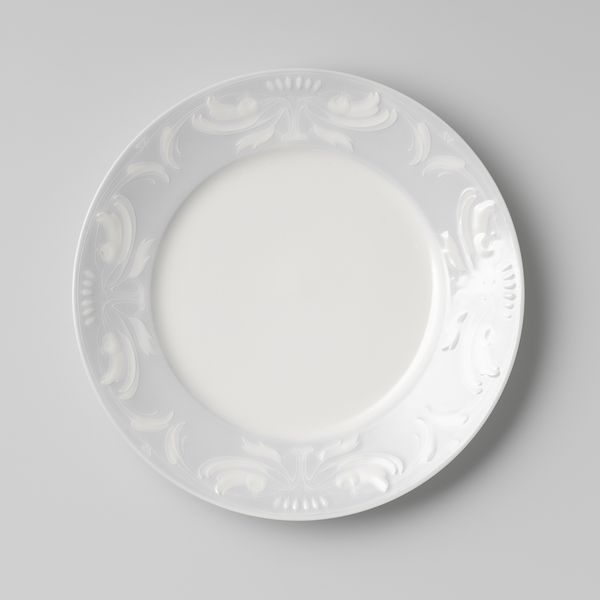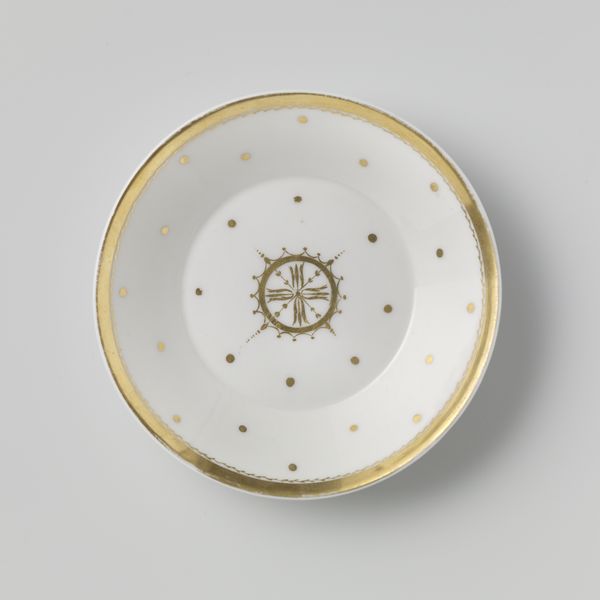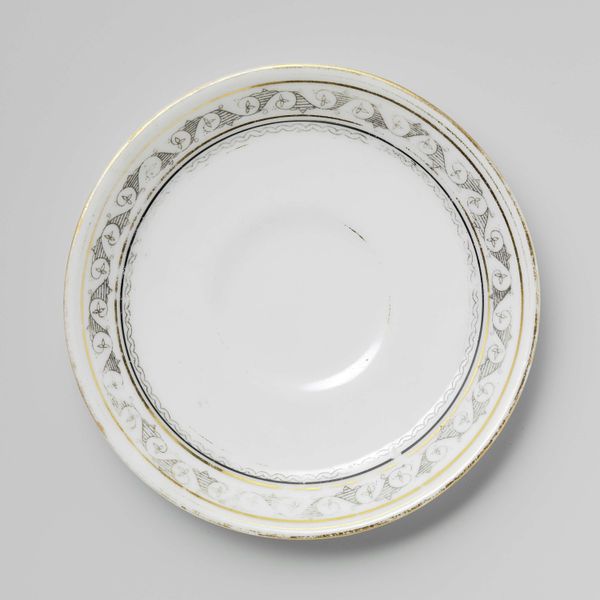
Gebakschotel versierd met blokmotief en stippen in geel en zwart c. 1900 - 1925
0:00
0:00
chrisvanderhoef
Rijksmuseum
ceramic, earthenware
#
product photograph merchandise
#
product studio photography
#
staged studio photograpy
#
art-nouveau
#
product promotion photography
#
product fashion photography
#
lifestyle product photography
#
ceramic
#
retro 'vintage design
#
earthenware
#
stoneware
#
geometric
#
graphic design product photography
#
product photography
#
decorative-art
Dimensions: height 1.5 cm, diameter 13.0 cm
Copyright: Rijks Museum: Open Domain
Editor: Here we have a cake plate, "Gebakschotel versierd met blokmotief en stippen in geel en zwart," by Chris van der Hoef, dating from around 1900-1925. It's made of earthenware, I believe. It's got these geometric Art Nouveau designs. It strikes me as very…ordinary. In fact, the crack shows that is functional! What can you tell me about it? Curator: "Ordinary" is an interesting starting point. Let’s think about that earthenware. What does the choice of a relatively common material suggest about van der Hoef's intent, versus, say, porcelain? Also, where was it made? Editor: Hmm, well the use of earthenware rather than porcelain implies a wider distribution and that it was more commonplace, probably cheaper to produce and access… It's located in the Rijksmuseum in Amsterdam. Was it meant to appeal to everyone, or was it destined for a certain part of the Dutch market? Curator: Precisely! So we must think of the socio-economic contexts. This object reflects changing attitudes towards craft and industry. This wasn’t hand-painted china by a lone artisan, and wasn’t intended for nobility, but the rising middle classes. Consider also that repeated block motif, likely mechanically applied using newly-developed production methods to churn out this style! What impact would the wider availability of this pottery have had on traditional craftspeople? Editor: Ah, so mass production threatens the value of handcrafted artistry and its impact to local economies? And because its mass-produced with simplified graphic decoration, it is much more affordable than handcrafted luxury plates? I hadn't thought of it in that way. It’s much more charged than I originally thought. Curator: Indeed! By examining this seemingly simple cake plate, we've uncovered some pretty complex themes surrounding labor, production, consumption, and the shifting values in art and society in the early 20th century!
Comments
No comments
Be the first to comment and join the conversation on the ultimate creative platform.
